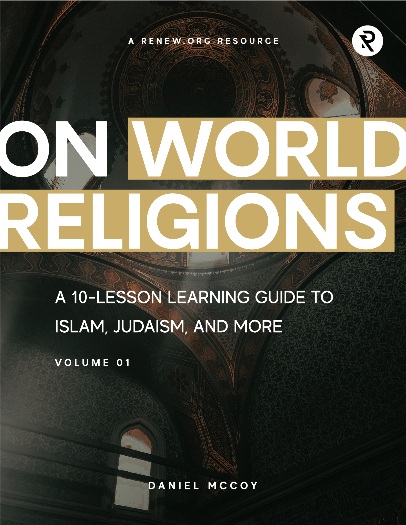
Q&A – Why Is It Worth It to Pursue a Multiethnic Church?
Churches which are truly multiethnic and multicultural take a lot of intentionality. Why is it worth the effort? I recently sat down with four church leaders who are doing this well and asked them questions which get at the heart of how churches can be more intentional about pursuing multiethnic, multicultural churches. The church leaders are Michael Patterson (Atlanta, GA), Marcos Mercado (Wilmington, DE), Ronnie Rose (Greenville, SC), and Kerry Cox (St. Louis, MO). Other articles in this series: “What Gets in the Way?” “What Habits Can Break Barriers” “How Does Christianity Relate to Other Cultures?”
Q: Being intentional about having a multiethnic, multicultural church takes work. Why is that a vision worth pursuing?
Michael: That was Jesus’ plan. Go and make disciples of all nations and baptize them. So I think we are really just following the teachings of Jesus. Then as you spread the seed, it just grows everywhere. That would be my short answer; it goes back to Jesus’ commandment.
Marcos: It’s also a vision worth pursuing because of love. If we’re truly loving one another, we should be able to overcome differences. And I would say it’s more than just ethnic and cultural differences. Even when it comes to political differences, we should be intentionally trying to love each other. Jesus said that people will know that we’re His disciples by our love for one another.
Probably the easiest way people can see right away that we love each other despite differences is if we’re multiethnic. You know, if we’re not just a group that all looks the same. I think a lot of times people expect to walk into a group that all looks the same. When people see in the church that we’re different from each other yet love each other, that’s being a light in the world.
“When people see in the church that we’re different from each other yet love each other, that’s being a light in the world.”
Ronny: I couldn’t agree more. I mean, this is not even deep into the teachings of Jesus. This is one of the basics: you love all people. And it’s no credit to you if you’re just loving people that love you back or that look like you or that believe the same things that you believe. It’s a sign of supernatural, Holy Spirit, agape, Jesus-style love when you are loving people that are not like you.
Kerry: It’s also important because everybody adds something important to the church, right? I think this applies with different cultures and ethnicities as well. I think about our campus ministry which has been richly blessed because of different cultures and what they bring to the table. In a sense, it’s like we fill in the gaps for each other.
For example, when it comes to compassion, there are kids from Ecuador in our ministry who bring so much sweetness and compassion. They bring something different into our ministry that we get to learn from. I think about our Brazilian students; they tend to be very passionate as they bring a fire that maybe sometimes is missing.
“What our ethnic diversity says to the world is extremely powerful.”
Also, what our ethnic diversity says to the world is extremely powerful. The world is not used to seeing that. And if we’re going to be a contrast—the light of the world Jesus talked about—I think it’s an extremely powerful way to show the world.
Marcos: I would also add this: As much as people don’t want to admit it, you kind of gravitate toward people that are like you. And so, if you go somewhere and there’s no one who looks like you, you don’t feel a connection. But if you go there and there are so many different people and you find people that are like you, you connect. I think that it’s very important for a church that no matter who walks through the door, they feel like they belong.
It’s a sign of supernatural, Holy Spirit, agape, Jesus-style love when you are loving people that are not like you.











